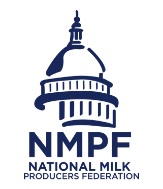
Agricultural News
Dairy Defined: How Red Herrings Became Part of a Plant-Based Diet (and How to Get Them Out)
Mon, 10 Feb 2020 09:18:26 CST
 Of the many inaccurate arguments misattributed to dairy in the debate over imitation-product labeling, one of the most persistent is that "Big Dairy says consumers are confused about what milk is" a statement that tries to turn a public-health issue into a debate on respect for consumer intelligence.
Of the many inaccurate arguments misattributed to dairy in the debate over imitation-product labeling, one of the most persistent is that "Big Dairy says consumers are confused about what milk is" a statement that tries to turn a public-health issue into a debate on respect for consumer intelligence.
Saying that "Big Dairy" (whatever that is) thinks consumers can't tell real milk from a plant-based beverage is a classic "red herring" argument, a logical fallacy that leads audiences toward false conclusions by misdirecting an important question. The misstatement let's call it what it really is: the Big Lie creates its own confusion by substituting the important public-health issue that dairy and health advocates are raising whether consumers understand the nutritional differences between dairy products and plant-based imitators with an argument that no one is actually making, but is easier to refute.
That's the kind of obfuscation a sector trying to get away with inaccurate marketing wants to create. For the public good, they can't get away with it.
So, for the thousandth time: The concern over "confusion" being raised by dairy groups isn't about whether or not a dairy product contains an almond. It centers on the wildly different nutritional profiles of non-dairy products that create a false consumer perception of equivalence when they use dairy terms on their labels -- and encourages decisions well-meaning consumers might not otherwise make were labels more accurate.
Misleading labeling harms public health. That's the concern NMPF raised last month in a hearing on the DAIRY PRIDE Act, which would direct the FDA to enforce labeling integrity. That's the concern addressed in last year's FDA docket on dairy labeling. And that's the concern on which research is quite clear. A 2018 IPSOS survey commissioned by Dairy Management, Inc. found that:
77 percent of consumers thought almond-based drinks had as much or more protein per serving than milk. Milk has up to eight times as much protein.
53 percent said they believed that plant-based food manufacturers labeled their products "milk" because their nutritional value is similar.
Misinformation was even more prevalent among consumers who solely purchase plant-based beverages. Of those buyers, 68 percent strongly or somewhat agreed that those drinks have the same nutritional content as dairy milk.
Don't believe that data? Here's what the American Academy of Pediatrics has to say:
Pediatricians report that using the term "milk" in the labeling of dairy-free alternatives has caused parental confusion, leading to the purchase of products that they assume contain traditional dairy ingredients and, thereby, unintentionally causing harmful nutritional deficiencies in their children. - Given the importance of dairy products in the diet of children and the confusion that parents exhibit with regards to the nutrients contained in plant-based alternative products, the AAP recommends that FDA reserve the label of "milk" solely for traditional dairy products to ensure that children receive the optimal nutrition they need.
To fight the misdirection, it's crucially important to remember the actual question before FDA: whether clear labeling that reserves dairy terms for dairy products would help consumers. Given the nutritional confusion in the marketplace, a signal to a consumer that indicates a non-dairy substitute isn't nutritionally equivalent to a dairy product would seem helpful. It's what other countries do, and it's what many good-actor companies already do in the U.S., so the goal is clearly easy to achieve.
It's time to bury the "consumers already know what's in their milk" red herring. Busy, intelligent consumers need all the help they can get, without plant-based peddlers exploiting the fact that most people aren't nutrition scientists and understandably (and accurately) associate beneficial nutritional qualities with dairy terms.
Let people who want high-protein, high-calcium, nutrient-rich, natural dairy products know that the real thing with a label that uses dairy terms correctly -- gives them what they seek. Other consumers can buy whatever imitations they wish. But companies shouldn't be allowed to market with terms that imply they're something they're not.
Plant-based products have their place. Red herrings should have no place in their promotion.
WebReadyTM Powered by WireReady® NSI
Top Agricultural News
More Headlines...



















